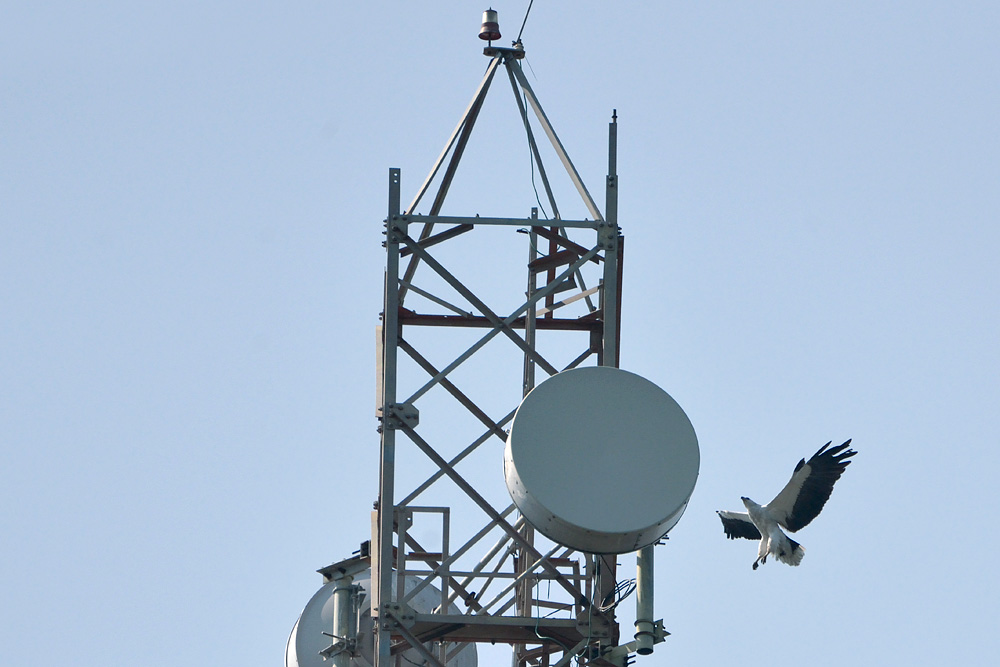
The White-bellied sea eagle is a master of the seas, its range extending from the coasts of Gujarat to South-East Australia. With changing habitats and increasing anthropogenic pressure, these eagles have adapted to roosting and nesting on mobile towers and fishing alongside extensive nets1.
Preliminary evidence has demonstrated the negative impact of the proximity of mobile towers to bird nests. Studies on kestrels,2 white storks3 and sparrows4 have all shown damage to nesting in the long-term. With the white-bellied sea eagle’s habit of reusing nests, the risk from these towers is very real.
The removal of tall nesting trees is the primary reason for this mobile tower adaptation by the eagles. While Casuarina is a contentious species for afforestation (with its negative impact on nesting sea turtles widely documented), it seems to be one of the few species of tall trees along the coast that are used by the WBSEs for nesting5. In Odisha WBSEs also nest in Banyan trees near the coast.
—
References:
- White-bellied Sea Eagle on a Fish Trap in Lake Chilika, Odisha. Vasanth Asokan, 2012.
- Effect of electromagnetic fields on photoplastic circulating melatonin levels in American Kestrels. Environ Health Perspect. 1999 November; 107(11): 901–904.
- Possible Effects of Electromagnetic Fields from Phone Masts on a Population of White Stork (Ciconiaciconia). Environ Health Perspect.2005, Vol. 24, No. 2, Pages 109-119
- The Urban Decline of the House Sparrow (Passer domesticus): A Possible Link with Electromagnetic Radiation.
- White-bellied Sea eagle survey in Ratnagiri district. VishwasKatdare, Ram Mone, Salim Ali Nature Conservation Fund, BNHS, Mumbai (1996- 98).

 CI is a non-profit, non-commercial portal that aims to facilitate wildlife and nature conservation by providing reliable information and the tools needed to campaign effectively.
CI is a non-profit, non-commercial portal that aims to facilitate wildlife and nature conservation by providing reliable information and the tools needed to campaign effectively.
Chosen as 'Picture of the Week'
The white-bellied sea eagle (Haliaeetus leucogaster) is a master of the seas, its range extending from the coasts of Gujarat to South-East Australia. With changing habitats and increasing anthropogenic pressure, these eagles have adapted to roosting and nesting on mobile towers.